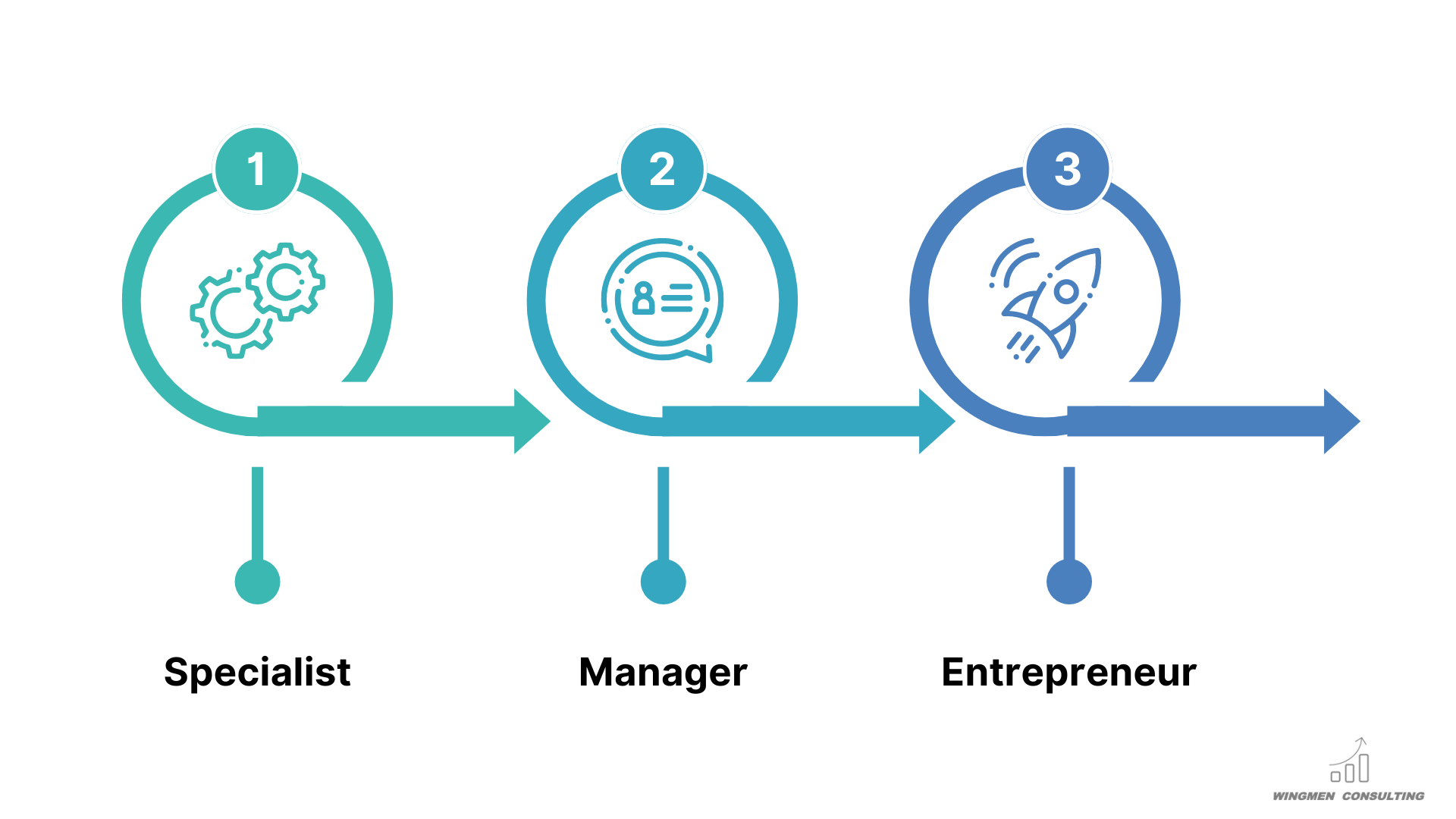What is Founder’s Disease and How to Cure It?
Are you passionate about your business? You’ve poured your heart, soul, and countless hours into making it what it is today. But there’s a common trap that many founders fall into, known as Founder’s Disease. Understanding and addressing this issue is crucial for the growth and sustainability of your business. We’ll also delve into insights from Michael E. Gerber’s “E-Myth Revisited” to help you navigate these waters and transform your approach to business management.

E-Myth Revisited: Why Most Small Businesses Don’t Work and What to Do About It
In Michael E. Gerber’s seminal book, “E-Myth Revisited,” he explains why most small businesses don’t work. The key issue? Founders often get caught up working in their business instead of on their business. This is a hallmark of Founder’s Disease. The book emphasises the importance of creating systems and processes that allow the company to run smoothly without the founder’s constant involvement. It’s about transitioning from a doer to an overseer, from being indispensable to creating a business that can thrive independently.
Gerber introduces the concept of the E-Myth, or the Entrepreneurial Myth, highlighting the false belief that most small businesses are started by entrepreneurs risking capital to profit. In reality, they are often started by specialists (the doers) suffering from an entrepreneurial seizure. This shift from specialist to business owner is where many hit a roadblock. The entrepreneurial seizure occurs when a specialist, driven by the frustration of working for others, decides to start their own business, believing that technical expertise alone is enough to run a successful enterprise. This misconception is where the seeds of Founder’s Disease are sown.
The 3 Roles: Specialist, Manager, and Entrepreneur
Gerber outlines three critical roles within any business: Specialist, Manager, and Entrepreneur. Balancing these roles is essential for overcoming Founder’s Syndrome.
1. Specialist
This is when you’re engrossed in the specialist’s work, whether it’s coding, cooking, or consulting. Specialists are essential for quality and expertise. However, if a founder remains too entrenched in this role, it can prevent them from seeing the bigger picture and hinder the business’s scalability.
2. Manager
This role involves planning, organising, and ensuring that things run smoothly. Managers focus on efficiency and consistency, setting the stage for growth. Managers are the bridge, between the specialist and the entrepreneur, ensuring that the day-to-day operations align with the business’s strategic goals.
3. Entrepreneur
Here lies the visionary within you. Entrepreneurs are dreamers, innovators, and the driving force behind the business’s growth and evolution. The entrepreneurial role is about setting long-term goals, identifying opportunities, and steering the business towards new horizons. It requires stepping back from daily operations to focus on strategy and innovation.
Founder’s Disease often manifests when a founder switches between all roles, unable to delegate or transition into the Entrepreneur role. It’s crucial to find a balance, allowing you to focus on strategy and growth. If not cured, Founder’s Disease can lead to burnout and stagnation. Many founders fail to develop a clear organisational structure, which leads to chaotic decision-making and an inability to scale.

Transitioning from Doer to Leader
The transition from doer to leader is a challenging but necessary evolution for any business founder. It begins with recognising the need to step back and assess your role within the business. Gerber suggests creating systems and procedures that document every aspect of your operations. This approach ensures that a business can operate without the founder’s constant intervention, fostering independence and sustainability.
Delegation is a critical skill in this transition. Empowering employees by delegating responsibilities not only frees up the founder’s time but also helps in building a competent and motivated team. Trusting others with key tasks and responsibilities is essential for growth. It allows founders to focus on strategic initiatives rather than getting bogged down in daily operations.
Additionally, investing in leadership training and development can provide the skills necessary to manage and inspire a growing team. Understanding that your role as a founder should evolve from being the technical expert to being a strategic leader can transform your business.
Avoiding Burnout and Ensuring Long-Term Success
Founder’s Disease, if left unchecked, can lead to severe burnout. The relentless cycle of trying to do everything yourself is unsustainable. Burnout can have a detrimental effect on both the founder’s well-being and the business’s health. Recognising the signs of burnout – such as constant fatigue, lack of enthusiasm, and decreased productivity—is the first step towards addressing it.
Implementing a work-life balance strategy, seeking mentorship, and connecting with other entrepreneurs can provide the support needed to navigate these challenges. Surrounding yourself with a network of advisors and peers can offer fresh perspectives and insights, helping you overcome hurdles and stay motivated.
Conclusion
Founder’s Disease is a common but surmountable obstacle on the path to business success. By understanding the importance of transitioning from working in your business to working on your business, you can pave the way for sustainable growth and innovation. Michael E. Gerber’s “E-Myth Revisited” provides invaluable insights into how to achieve this transformation. Embrace the roles of Specialist, Manager, and Entrepreneur, and strive for a balanced approach to leadership. With the right mindset and strategies, you can overcome Founder’s Disease and lead your business to new heights.
